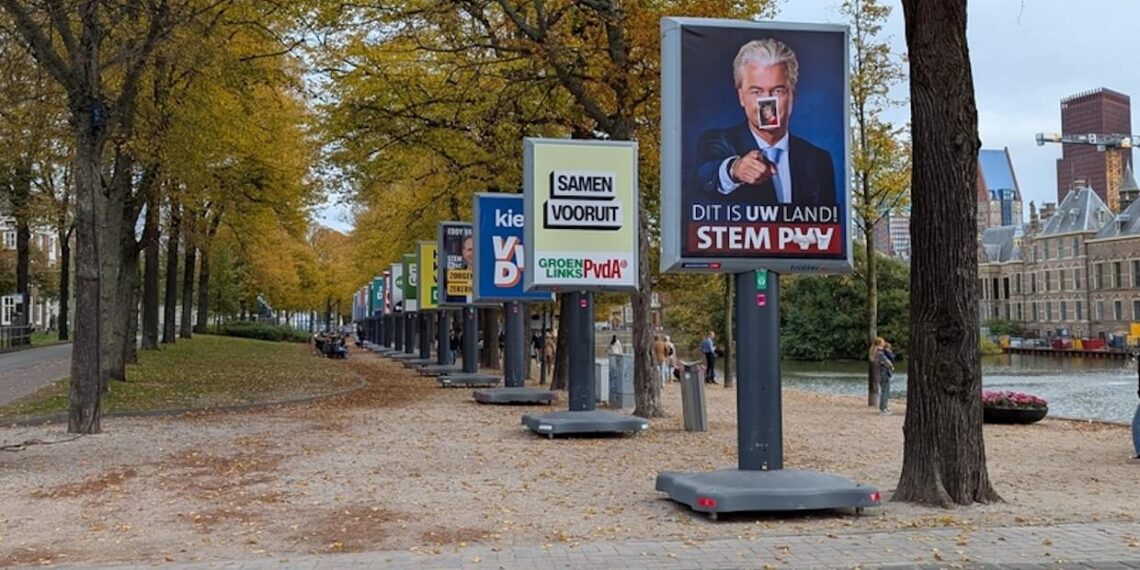In an in-depth interview with the ECPS, Dr. Koen Vossen, political historian and lecturer at Radboud University, analyzes the ideological evolution and endurance of Geert Wilders’s Party for Freedom (PVV). He stresses that “The anti-Islam core is absolutely the most important part of this party,” noting that despite tactical moderation, its fundamental worldview remains unchanged. According to Dr. Vossen, the PVV’s “one-man structure” and lack of internal democracy make it both flexible and fragile. Wilders’s “clash of civilizations” narrative, rooted in his early attachment to Israel, continues to shape his politics. As Dr. Vossen observes, media normalization, cultural anxieties, and declining institutional barriers have allowed the PVV to become a lasting—though polarizing—force in Dutch politics.
Interview by Selcuk Gultasli
In a wide-ranging interview with the European Center for Populism Studies (ECPS) following the Dutch general elections of October 29, 2025, Dr. Koen Vossen, a political historian and lecturer in political science at Radboud University, offers a nuanced analysis of the ideological evolution, strategic positioning, and organizational structure of Geert Wilders’s Party for Freedom (PVV). Dr. Vossen, a leading scholar on Dutch populism and right-wing movements, situates the PVV within a broader European radical-right context while emphasizing its distinctly Dutch trajectory.
As Dr. Vossen underscores, “The anti-Islam core is absolutely the most important part of this party.” While the PVV has, over time, expanded its platform to include positions on welfare, housing, and law and order, these remain secondary to its central ideological fixation. The PVV, he explains, “is really basically one man… It is purely a matter of what Wilders wants, what he does, and what he likes.” This personalization of power, combined with the party’s lack of internal democracy, explains both its tactical flexibility and its chronic difficulty in governance.
Dr. Vossen traces Wilders’s ideological consistency to what he calls a “clash of civilizations” worldview, deeply informed by his “special connection with Israel.” Having worked on a kibbutz as a young man, Wilders came to see Israel as “the main buffer against Islamization.” This perspective not only anchors the PVV’s foreign policy but also shapes its domestic narrative of cultural defense. According to Dr. Vossen, Wilders’s “absolute core ideology is this anti-Islam ideology,” while his steadfast pro-Israel stance serves as both a symbolic and programmatic pillar in PVV discourse.
On the domestic front, Dr. Vossen attributes the PVV’s durability to a combination of structural and contingent factors: the decline of pillarized institutions, the fragmentation of the Dutch party system, and the normalization of far-right rhetoric through media amplification. “Over the last ten years,” he notes, “we’ve seen the clear emergence of a very right-wing media… strongly conservative and very much anti-left. ‘Left’ as a word, as a concept, has almost become an insult in the Netherlands.” The weakening of social intermediaries and the culturalization of political conflict, he argues, have made space for a stable radical-right electorate of roughly 30%.
Despite periodic moderation—what Wilders once called putting his ideas “in the freezer”—Dr. Vossen believes the PVV’s ideological substance remains intact. Even temporary participation in government, he argues, only suspends rather than transforms its radicalism. The 2025 elections, he concludes, show both the limits and persistence of Dutch populism: a movement still revolving around one man, one message, and one enduring enemy.
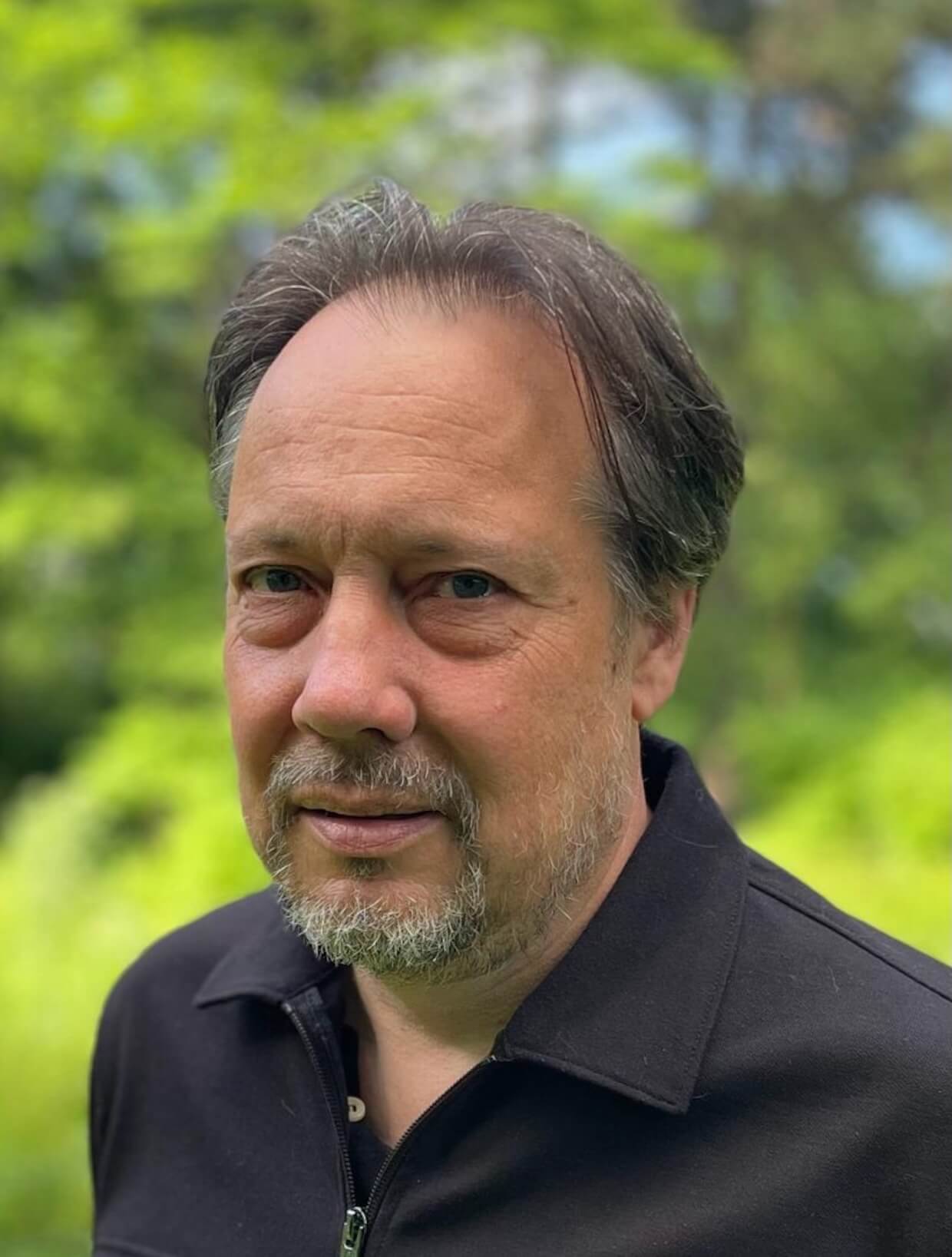
Here is the edited transcript of our interview with Dr. Koen Vossen, slightly revised for clarity and flow.
Dutch Voters Long for Stability After Polarization Fatigue
Professor Koen Vossen, thank you very much for joining our interview series. Let me start right away with the first question: The recent Dutch election produced a dramatic reversal for the PVV, whose brief coalition participation ended in collapse, while D66 surged to the top of the polls. To what extent should we interpret this outcome as evidence of a structural electoral realignment favoring centrist, pro-EU forces—or as a temporary recalibration following the PVV’s troubled spell in government? In other words, are we witnessing a durable shift in voter preferences or merely the electoral consequences of perceived misgovernance?
Dr. Koen Vossen: I think both. Interpreting Dutch election results is always tricky because we are a country of minorities, so there are always more stories than one story in an election result.
What you saw in the last election was a longing for more stability—for a more stable coalition among a part of the electorate. People were fed up with the old polarization and longed for more centrist politics. That was absolutely there.
At the same time, you have also seen in the Netherlands that the border between the radical right and the center-right has somehow been blurred, especially in the conservative-liberal VVD, the party once led by Mark Rutte and now by Dilan Yeşilgöz. It has moved very much to the right and wanted an exclusively center-right coalition without Wilders’s party.
So, one could also interpret the result as support for this center-right coalition or as support for a more centrist coalition. At the same time, Wilders’s party still had about 17 or 18 percent of the vote. He lost some votes but remains the second-largest party in the Netherlands, so there are different stories here.
The Radical Right’s 30% Support Shows Structural Stability
Despite near-parity in seat totals, Geert Wilders appears politically isolated, as most mainstream parties again refuse coalition cooperation. Does this effective ‘cordon sanitaire’ signal the enduring resilience of Dutch party-system norms against radical-right institutionalization? Or does the continued aggregate strength of far-right parties (including FvD and JA21) indicate a deeper, longer-term transformation in the ideological landscape that may eventually erode such exclusionary practices?
Dr. Koen Vossen: The radical right maintained its position with about 30% of the vote. So, it’s still there—this 30%. They did not really lose in the last elections, but their support was divided among different parties, maybe even 35% in total. Previously, Wilders had the largest share of this radical-right vote—around 25%. The rest went to smaller radical-right parties, but now these smaller parties have grown, and most of the voters that Wilders lost went to them. So, there’s been more of a transfer of votes within this bloc than an overall loss. A small portion, maybe, went to the VVD—the conservative liberals who also tried to attract votes in the radical-right sphere. But in the end, there remains a fairly stable 30% of the Dutch electorate that supports these parties.
The PVV’s Core Is Anti-Islam
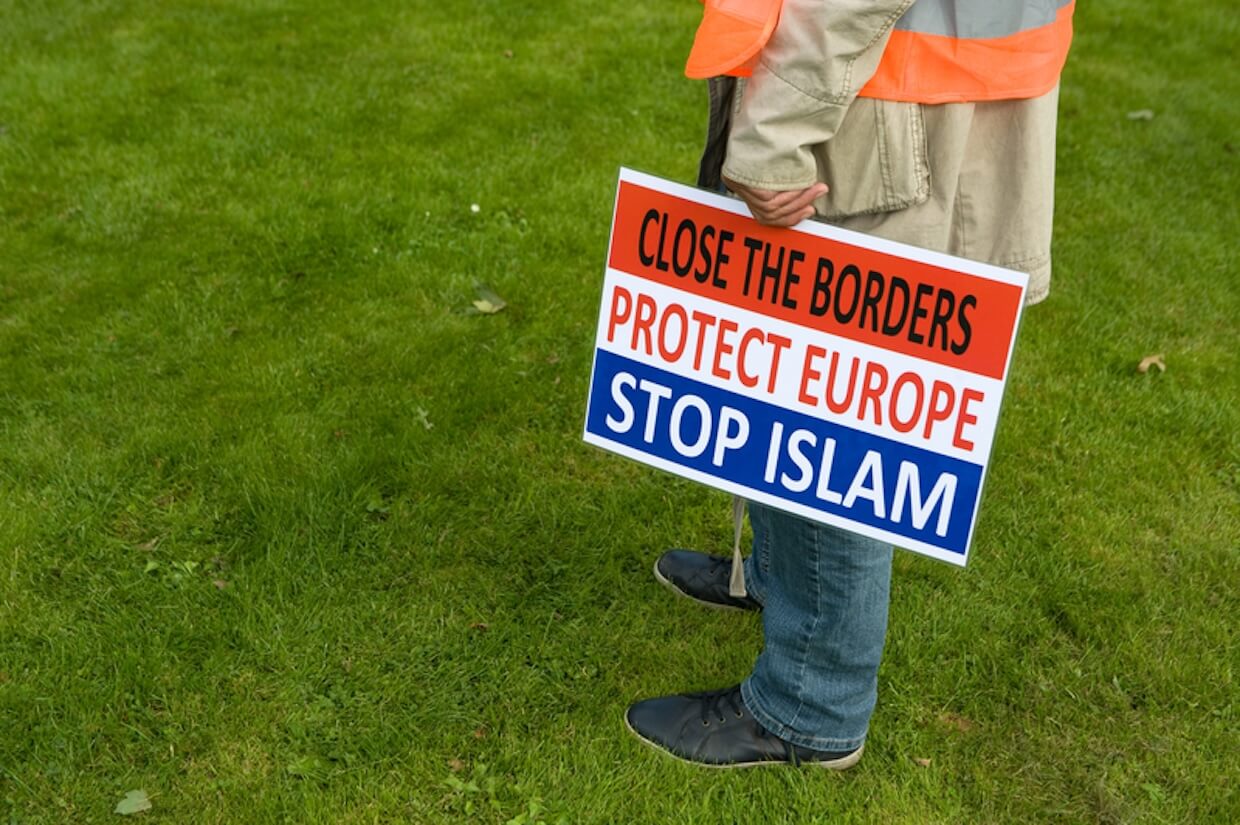
You argue that Wilders cannot be understood solely within the populist frame. How has the PVV’s ideological trajectory shifted from anti-establishment protest toward a more coherent political project, and what classifications better capture this evolution?
Dr. Koen Vossen: Populism has always been a thin ideology, so it needs other ideologies. In the case of the PVV, that has always been a strong nationalism and nativism, anti-immigration, and an anti-Islamic stance based on a “clash of civilizations” type of ideology, combined with a conservative law-and-order orientation. Since around 2010, you can see some tactical changes, but overall, the ideology has become quite clear and crystallized. Its main pillars are populism—with a very strong anti-elite sentiment—anti-immigration, welfare-state chauvinism, anti-Islam, and conservatism on law and order.
It should also be noted that the party is relatively progressive on some immaterial issues, such as gay marriage, abortion, and euthanasia policy—more so than many other parties. But on most other issues, it is quite conservative, particularly anti–climate policy. In that sense, the PVV is a fairly classic radical-right populist party, comparable to Rassemblement National (RN), Farage’s movement, Alternative für Deutschland (AfD), or the Swedish Democrats (SD). Some of them even sit together in the European Parliament.
What distinguishes the PVV, however, is its very strong focus on Islam—this is quite specific to the party—and Wilders has been a pioneer in this regard. The party is also pro-Israel and relatively progressive when it comes to issues such as gay marriage, women’s emancipation, and abortion. These are the main ideological characteristics of the PVV.
Right-Wing Media Have Made the Radical Right the Only Alternative
You have written that the PVV has become increasingly normalized in Dutch politics. Which institutional mechanisms—parliamentary collaboration, media treatment, coalition signaling—have most contributed to this mainstreaming?
Dr. Koen Vossen: Media treatment is very important. Over the last ten years, we’ve seen the clear emergence of a very right-wing media. One could even compare it to Fox News–type outlets—strongly conservative and very much anti-left. The left wing has become the main enemy. “Left” as a word, as a concept, has almost become an insult in the Netherlands. “Leftist people” and similar terms are not neutral—they never were, of course, but this tendency has grown stronger.
The media treatment means that if the right-wing parties did not deliver in coalitions, the left was not seen as an alternative. Then the radical right became the alternative. If the radical right proved not to be the alternative, people looked to other right-wing parties—never to the left. The left has been out of the race, especially in these media. So, the radical right has become the alternative.
This also has to do with the fact that, in 2023, after eleven years of cordon sanitaire, the VVD decided to open the door again for collaboration with Wilders’s party, the PVV—purely strategically. They thought, we always have to go into coalitions, we always have to look to left-wing parties; now they wanted to look to a right-wing party, even an extreme right-wing party, to have more options. This proved to be a strategic blunder because now, for many parties, Wilders became an option. Before, they could always say, “Well, that’s a wasted vote because he will never govern.” But now it was not a wasted vote anymore—it became an option, and for a lot of these voters, even a better one.
So, helped by the media and by the end of the cordon sanitaire, one could say that the PVV emerged as the winner in 2023.

Anti-Islam Is the Core; Everything Else Is Secondary
Anti-Islam alarmism remains central to the PVV. Do recent policy expansions toward welfare and housing reflect ideological maturation, tactical vote-seeking, or merely cosmetic adjustment that leaves the anti-Islam core intact?
Dr. Koen Vossen: The anti-Islam core is absolutely the most important part of this party. I say party, but the thing is, with the PVV, it’s really basically one man. Although he has more than 2.5 million votes, talking about the PVV—especially on a national level—is talking about one man: his considerations, his thinking, and his decisions. The rest is not really relevant. So, one has to look into his head to find out what he thinks, as there are no public discussions or debates in this party. There’s no party organization, no conferences, no party manifesto, or party newspaper. It is purely a matter of what Wilders wants, what he does, and what he likes. Wilders’s absolute core ideology is this anti-Islam ideology. The rest of it—maybe calling it purely tactical is a little too cynical—but it is certainly not the main issue for him.
PVV Support Is Driven by Cultural Fear, Not Economic Anxiety
To what degree has the erosion of pillarized structures and intermediary institutions created the social fragmentation necessary for PVV success? Do cultural anxieties outweigh economic grievances in explaining the party’s appeal?
Dr. Koen Vossen: I think it’s mainly a cultural matter—it’s all about immigration. These voters’ main concern is immigration, absolutely. Housing is second, but it’s connected to immigration. If you look at the socioeconomic profile of the PVV voter, one cannot say that these are the less fortunate ones economically. Of course, you also see them in the lower-income classes, but also in the middle- and higher-income classes, where people do not really experience economic anxiety. Economically, the Netherlands is doing quite well.
So, it is mainly a cultural thing—a fear of immigration, fear especially of asylum seekers, which has become a very big issue in the Netherlands. Incidents involving asylum seekers have attracted a lot of attention in the media, and as a result, these issues became the most salient in the election campaign. Immigration was the issue people talked about, and Wilders benefited from this. So, if you see immigration more as a cultural issue, then I would say it was more on a cultural level than on an economic one.
Wilders’s ‘People’ Are Defined Against the Leftist Elite
How does the PVV’s construction of ‘de volk’ differ from earlier Dutch nationalist discourses? Is the imagined community increasingly defined through civilizational frames—especially Judeo-Christian identity—rather than ethnic or civic nationalism?
Dr. Koen Vossen: That’s an interesting one. The main difference is that, first of all, until the 1960s or 1970s, the Netherlands was a pillarized country. You had these different minorities—the Catholics, the Protestants, the Socialists, the Liberals. These pillars have disappeared, and in a way, we have now become one big population, without this idea anymore of four different groups.
There is actually a majority culture—secular, quite progressive in many ways, but also liberal in an economic sense. So, there has been a kind of majority culture. What has now become the new cleavage for many people is between the elite, which is often associated with the left, and the people—and that is what Wilders capitalizes on.
This imagined community of Wilders is very much an anti-elite community, especially anti–cultural elites. In the Netherlands, we call this the Amsterdam Canal District—that’s the center of Amsterdam—and that’s where, in this imagined community, live the elites who disparage the common people. A little bit like the Rive Gauche in Paris, or similar places elsewhere—these left-wing people who, in his narrative, look down on ordinary citizens. That has mainly become his imagined community: a “good people” who have been betrayed by a leftist elite. So, it’s an anti-elitist conception of the people. That is the main difference between now and the past.
In Dutch Elections, Two or Three Percent Can Decide Everything
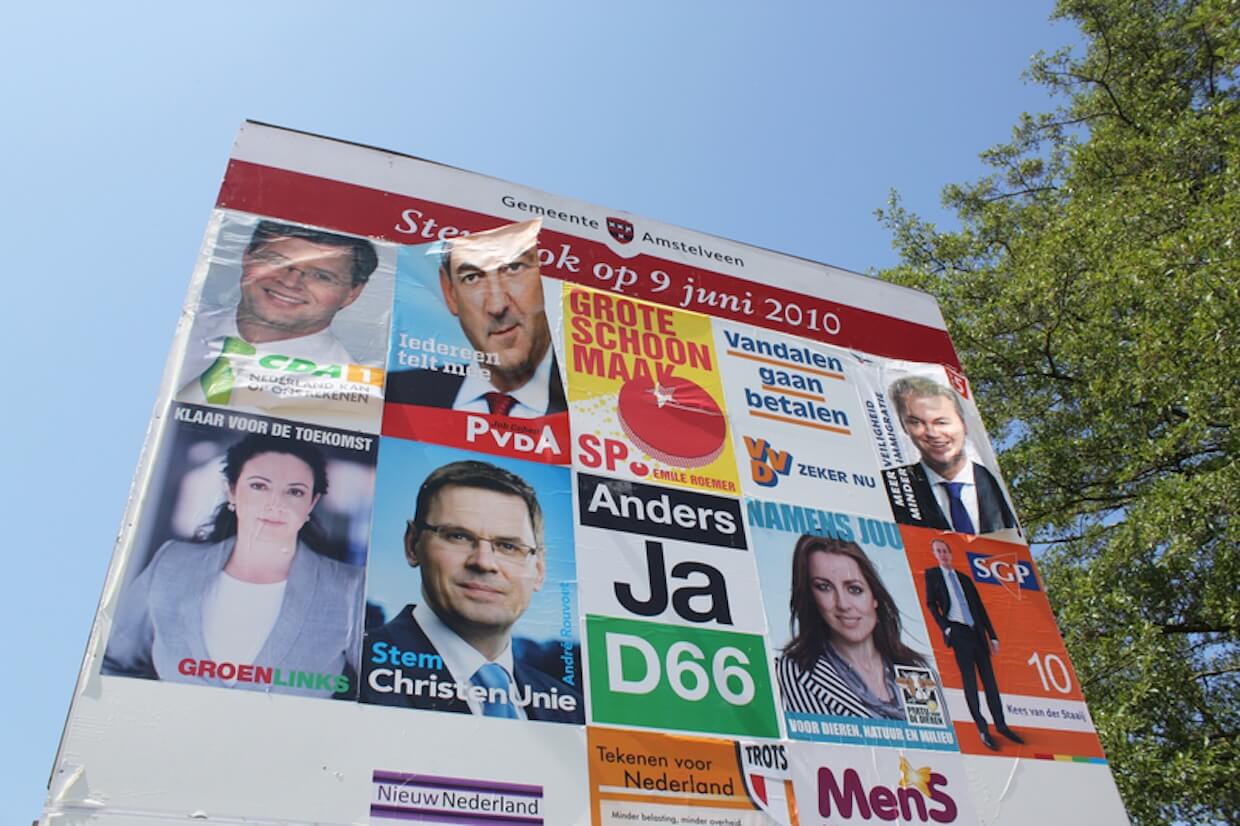
Was the PVV’s 2023 electoral breakthrough driven primarily by long-term ideological convergence between party and electorate, or did short-term crises—housing, asylum pressure, inflation—create an episodic opportunity?
Dr. Koen Vossen: What happens in the Netherlands is that election campaigns matter a lot. We are a country with many parties—very fragmented, without any single dominant one. So, you usually have three or four major contenders—it’s almost like a cycling tour. In the end, a few escape the peloton, race toward the finish, and then there’s a sprint where two or three percent makes the difference. Sometimes, a small push at the end—some luck, a sudden event, or a strong debate performance—can deliver those few extra percentage points.
So, the PVV this time, because of what I already mentioned—the end of the cordon sanitaire, the VVD signaling that the PVV was now an option, immigration becoming a hot topic, and Wilders presenting himself as a bit more moderate—these factors, combined with a few strong debate performances, especially one widely watched debate where he clearly came out as the winner, gave him that final two, three, or four percent that made him the victor in these elections.
Had this not happened, it might just as well have been the centrist liberals who caught that last bit of momentum—with a good campaign and a little luck—and made the final sprint to become the largest party.
It’s a One-Man Party—And That’s Its Greatest Weakness
The PVV’s unique one-member structure creates tactical agility yet hinders institutionalization. How does this model shape accountability, policy competence, and the party’s ability to govern?
Dr. Koen Vossen: The main problem for the PVV is absolutely the fact that they lack personnel. They lack good people. And that should not have been a problem, except that Wilders is a very distrustful man. He does not trust anyone outside his very small circle of people. So, if he needs ministers, junior ministers, or people he can send to do a job, he has to rely on this small circle of people who have been around him for 10 to 15 years. These are people without any experience in governing. Their only experience is helping Wilders in his opposition work. So, they are not people who can govern a whole ministry.
This is the main problem—and he does not want to recruit people from outside because he does not trust them. He’s also afraid that other people could become more popular than he is, and all these kinds of things. So, that’s really the main problem of the PVV, and that’s why he basically failed in government—because he lacks both people and quality within his party.
Wilders’s Longevity Is Partly a Matter of Luck
Compared with LPF and FvD, the PVV has exhibited remarkable longevity. Does this durability reflect ideological clarity, organizational discipline—even if minimal—or simply an absence of credible far-right competition?
Dr. Koen Vossen: I think there’s even a fourth option—and that’s luck. For instance, the FvD seemed to be a really good competitor, but then the coronavirus hit suddenly. At the moment when the FvD made its breakthrough and was really campaigning across the whole country, the pandemic broke out. Everybody had to go into lockdown. For Wilders, this was nothing new, because he’s basically been in lockdown for the last 20 years, living under strong security measures. But for Thierry Baudet, for Forum voor Democratie, this proved to be a real disaster, because he got tangled up in all kinds of conspiracy theories about the coronavirus and vaccination. So, Wilders was just lucky that Baudet made a mess of things in his own party and made himself impossible.
Having said that, the story of the FvD isn’t over. They won again with a new leader—a young female leader, 28 years old—and became more attractive again for some voters. But for Wilders, what also matters is that he’s a political professional. He knows how to play the game. He’s very experienced in debates and in how to attract media attention—not too much and not too little. He knows exactly how to do these things. So, it’s also a skill that plays a role here.
Wilders Has Returned to His Old Anti-Islam Routine
The collapse of the most recent governing arrangement highlighted constitutional constraints on Wilders’ maximalist proposals. Has the forced “freezing” of radical positions substantively moderated the movement, or merely deferred ideological confrontation?
Dr. Koen Vossen: I think they lost. Since they are out of government, he’s kind of back to his old anti-Islam routine. He moderated his viewpoints for a while—he always said, “I put them in the refrigerator for a while, in the freezer.” But now the refrigerator is open again, and all the old viewpoints are back. One could even say that, in a way, he contaminated the conservative liberals and the Farmers Party, his partners in the coalition. He influenced them with his ideology because they also became more anti-Islam and very much pro-Israel. There’s, maybe, not a clear answer here, either.
Wilders Is the Ultimate Insider Who Plays the Outsider
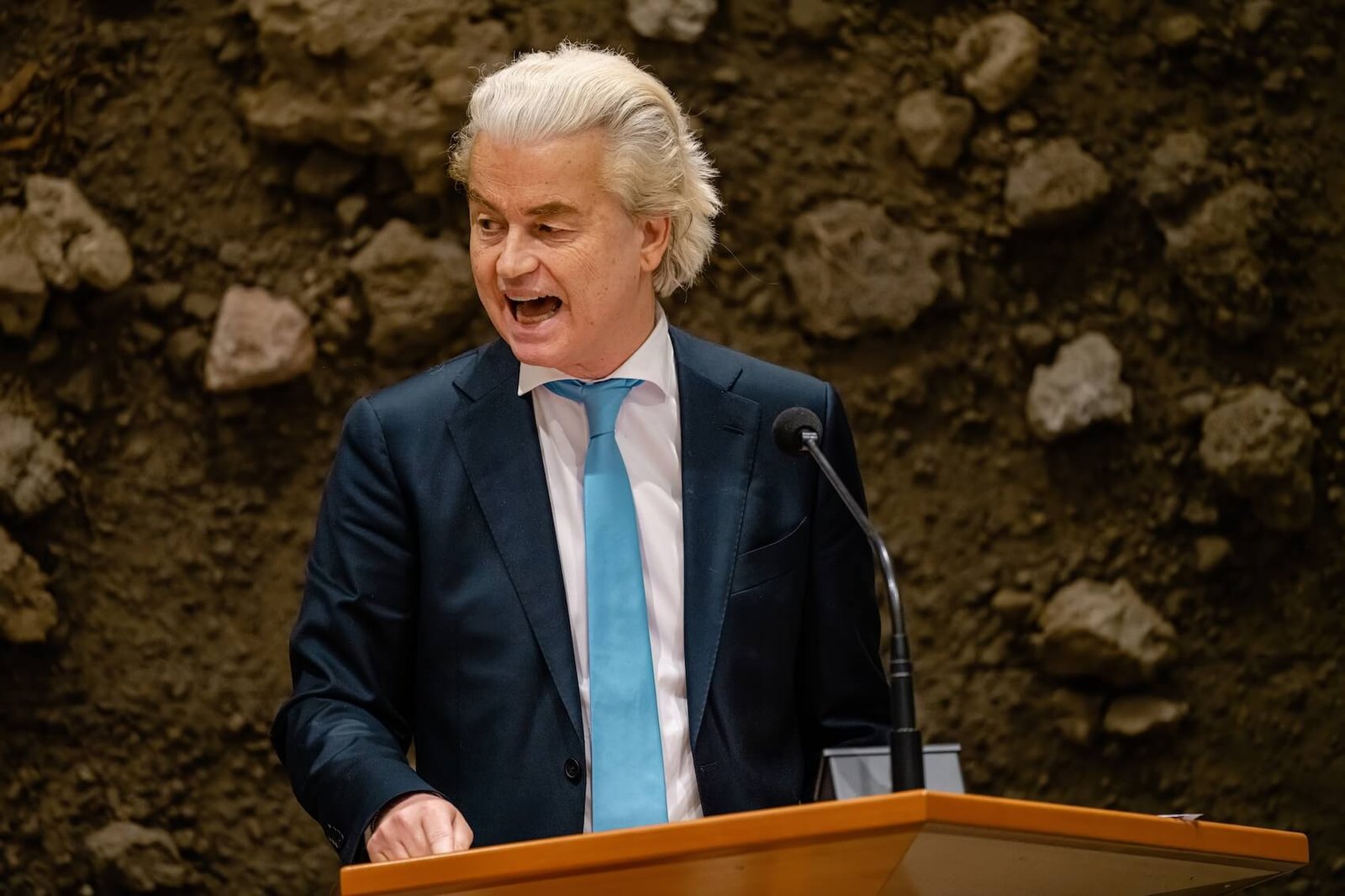
You note that Wilders seems most effective in opposition. If the PVV returns to government, might governance responsibilities erode its anti-system identity, or does the “Schrödinger’s populism” phenomenon enable Wilders to frame himself as both insider and outsider simultaneously?
Dr. Koen Vossen: I didn’t know the Schrödinger’s paradox, so I’ll have to look it up. Wilders has been an insider from the very beginning. He’s been in politics since 1990—first working for the conservative-liberal parliamentary group as an assistant, then becoming a member of the parliamentary group in 1998. He started his own party in 2004. So, he’s always been there. He’s an insider as much as one can be an insider in politics in The Hague, in the Netherlands. He has the longest tenure of all parliamentarians in the Netherlands, absolutely. But he has always managed to give himself an outsider profile by provoking and making these harsh statements. So, in that sense, he can really play with these elements. I don’t know the exact article about this Schrödinger’s populism, so I’m hesitant to go deeper into it, but at first glance, I would say yes—he plays this insider–outsider role very well.
Wilders’s Anti-Islam Discourse Grew from His Pro-Israel Stance
PVV foreign policy is heavily filtered through a clash-of-civilizations narrative. How does this framing shape its positions on Israel-Palestine, NATO, Russia, and Ukraine, and does it distort pragmatic assessment of national interests?
Dr. Koen Vossen: He’s very much pro-Israel, pro-Netanyahu. He doesn’t allow any criticism of Israel, and all the victims there—that’s just part of a war. So, in that sense, he’s very much pro-Netanyahu. When he was 19 years old and had just left school, he went to work on a kibbutz. He’s not Jewish himself, but he went there to spend a gap year. Before starting his studies, he wanted to do something different, so he did this. And since then—this was 1980 or 1981—he has had a special connection with Israel. One could even say that this special connection with Israel shaped his worldview early on. Already in the 1990s, he really saw the enemies of Israel as Islamic enemies. So, his whole anti-Islamic discourse partly comes from this pro-Israel stance, and he still sees Israel as the main buffer against Islamization. This whole story is still very much there.
With regard to Ukraine and Russia, the story is more complicated. Around 2017–2018, for a while, he made some remarks that were more pro-Russia. He even went to Moscow, but never as much as the Front National, Salvini, or Orbán. When Russia invaded Ukraine, he really distanced himself from Russia. But at the same time, he was not a very enthusiastic supporter of Zelensky or of Ukraine either. So, he tries to keep a little bit of distance there.
It’s the same with NATO. On the one hand, he’s very pro-Trump. On the other hand, Trump demands the 5% expenditure on defense, and that’s also something that for Wilders is problematic—that’s quite a lot, in his opinion. So, in foreign policy, does it sometimes hurt national interests? Yes, sometimes it does. In trade with Arab countries, with Islamic countries, Wilders can really be a problem for the Netherlands with all his remarks. For him, it’s not a reason to say, “Okay, I’ll tone down my voice a little bit.” No, he just says, “We should not deliver any weapons to Islamic countries,”for example, and things like that. So, he’s quite principled on these matters.
Israel Is Seen as the Vanguard Against Islamization
You have argued that the PVV positions Israel as the civilizational vanguard of the West. Is this symbolic architecture primarily a theological-civilizational justification for its anti-Islam platform, or does it carry genuine programmatic implications for Dutch foreign policy?
Dr. Koen Vossen: It did. The last government, which is still there now as a caretaker government, was also quite pro-Israel—one of the most pro-Israel governments in the European Union for a long time. So, there was not much criticism of Netanyahu for a long time. They were very much against sanctions. For example, when there was the question of some sick children going to the Netherlands for treatment, the PVV was very much against it, and this government was also against it. So, in that sense, it really had programmatic implications, absolutely.
But does it have theological roots? That’s difficult to say. It’s this whole idea of “Israel first” as well—there are different reasons for supporting Israel. There is this historical feeling of guilt toward the Jewish population in the Netherlands. The Netherlands was one of the countries with the highest percentage of Jews deported during the war, so there’s this lingering feeling of guilt. Then there’s the idea of Israel as the vanguard against Islamization, as part of this clash-of-civilizations narrative. There’s also a specific Christian motive in supporting Israel—you see this among Orthodox Christians. There’s a whole Christian theory behind that, similar to what you see in the United States. So, these are the three main reasons to support Israel in the Netherlands, and you see this reflected in the programmatic policy toward Israel.
Wilders Learned That Nexit Was an Unwinnable Battle
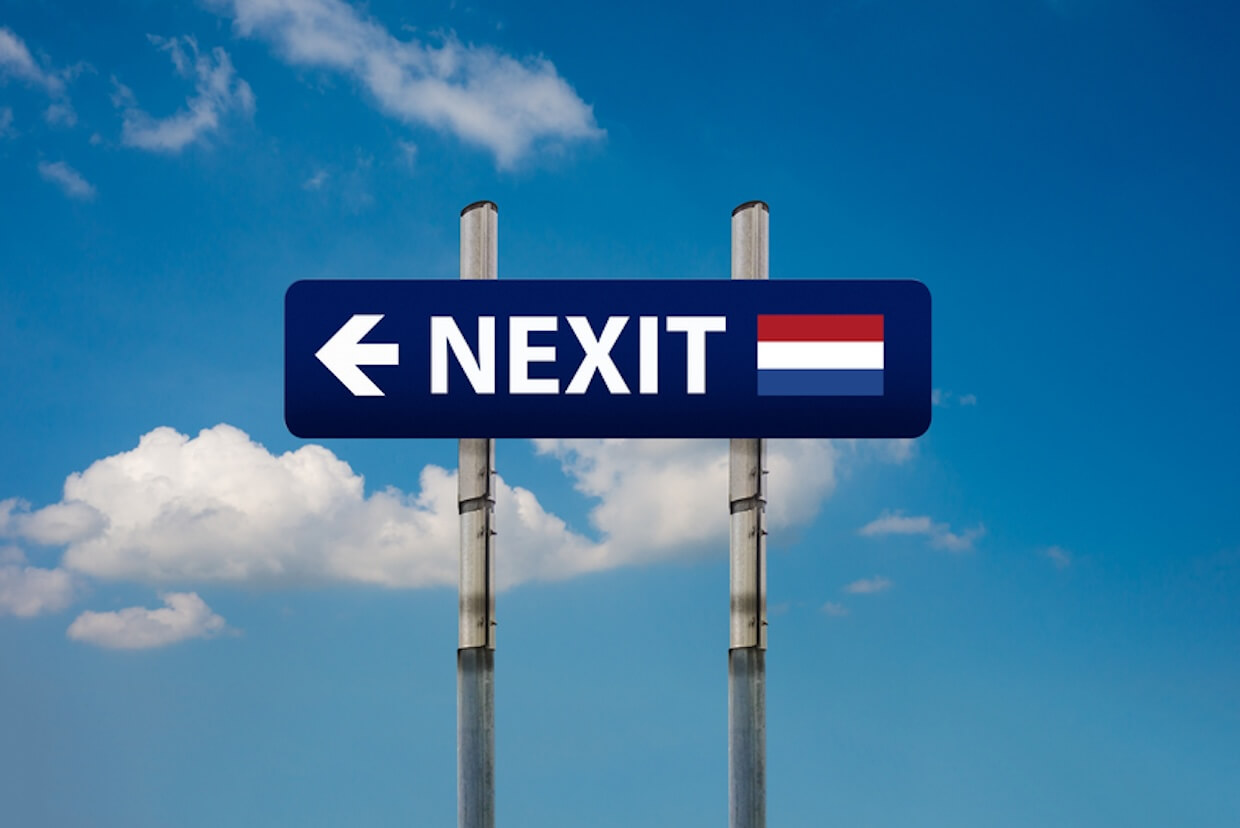
And lastly, Professor Vossen, the PVV has oscillated between advocating Nexit and merely proposing a referendum. Does this reflect strategic ambiguity intended to broaden its electorate, internal ideological uncertainty, or recognition that Euroscepticism is increasingly cultural rather than institutional?
Dr. Koen Vossen: Here you can really see a tactical motive. Nexit is not really popular in the Netherlands. It has never, in any poll, come even close to a majority. At most, 20–25% of the Dutch electorate favors some kind of Nexit. Because it’s such a trading country, it would be economically very stupid to have a Nexit. We are completely dependent on Germany economically. And people saw what happened in the UK with Brexit. So, Wilders thought, “Maybe with Nexit, I will never win this battle.” Like Le Pen did in France, he said, “I’ll drop the whole Nexit idea.” He mentioned something about a referendum, but in his last program for the European Parliament elections, he was quite vague and moderate about the European Union. He’s not a fan—he will never be a fan of the European Union—but Nexit is also a bridge too far for him.

